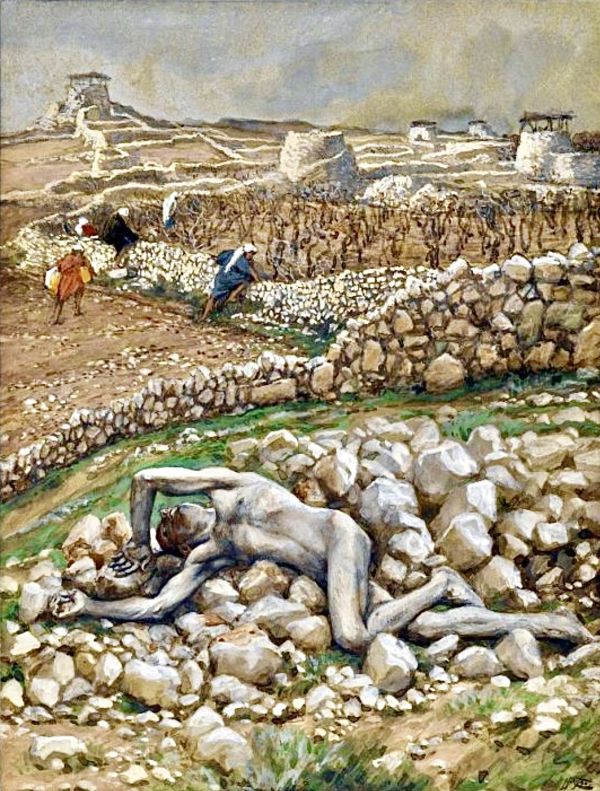(Mt 21:33-43.45-46)
Christ introduces everyone to an adventurous, uncomfortable journey, not without pitfalls that throw the situation upside down and destabilize - but it’s the Way for each of us to recognize himself.
Otherwise we would not get closer to the Source of perception, imagination, reality and creativity - virtues that are necessary for rebirth, even from global emergency.
Jesus uses the figure of the Vineyard to describe the work of God and the response of men - first and foremost spiritual leaders (v.23).
Religious leaders were like this: hostile to divine action; equipped to appear, nevertheless violent and sclerotic.
The directors to whom Jesus addresses, follow the entire metaphor step by step - and they seem to find themselves unguarded. They only remain speechless at the end.
Why does He ask them imperatively: «Listen you» [which is not a simple invitation]?
From the beginning speaks with a master tone. Why?
He’s Lord of those to whom he actually addresses: the Christ so much invoked by new caste of "pharisees" back in the communities, where top of the class already claimed to manage the Vineyard in their own way.
In no uncertain terms, the parable denounces the abuse of authority perpetrated in third generation assemblies, especially by their chiefs.
Church elders who were already annoyed at taking care of the little people, who on the other hand came to the threshold of the communities with the hope of being welcomed.
Conversely, it was precisely these «last» the new prophets called by God to awaken the immobility situation (of bosses) - comparable to the same swampy reality of other religions of time.
Everywhere and even today some potentates discriminate and manipulate consciences in order to protect their world - by eliminating Jesus Present, who recurs in the small, innocent and transparent ones.
Veterans accustomed to directing do not notice that they are decreeing their own condemnation (v. 41).
Of course, Christ doesn’t intend to ridicule anyone: He wanted to lead people to ‘tell the truth’ about themselves.
In Gospel the behavior of the titled people doesn’t change. On the contrary, feeling unmasked gets worse it, and only the hesitation of losing face in public can restrain them (vv.45-46).
But now they know who they are - so much so that they are ashamed to openly plot.
Categories that are considered closer to Paradise - those who produce inedible grapes - excluded from the testimony of the Kingdom innervated by tinies’ crowd.
There will inevitably be a new beginning, and the replacement of inept settlers (v.43).
It’s «good news»: the Eternal one achieves his purpose despite the repeated refusals of those who should serve Him, and instead use Him.
In short, for Jesus the great enemy of God is expediency.
Even amidst ungenerous brutality and accusations of being deluded dreamers, new and more faithful Heralds of the Spirit are ready for succession.
An unstoppable course, sprinkled by the stream of blood of the prophets (v.46).
Outcasts, shunned, expelled, and to be crushed - but not locked into mental patterns: capable of giving free rein to regenerative energies.
Consciousness of the world, divorced from compromise.
[Friday 2nd wk. in Lent, March 21, 2025]


